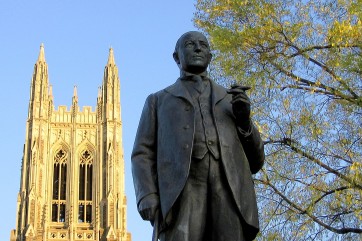With Growing Challenges Facing For-Profit Schools, at Least 4 Have Transitioned to Become Nonprofit Institutions
By Russell WesterholmFor-profit colleges are at a crossroads thanks to federal probes revealing various shortcomings and financial issues with a slowing revenue flow.
According to Inside Higher Ed, four for-profit college companies have made the difficult transition to nonprofit in the midst of threatening challenges. All it takes is a simple tax status switch, but for many for-profit institutions, it is not worth it.
For-profit schools currently face a rule that caps what they can receive from federal sources at 90 percent of their total revenue.
Facing such problems, Corinthian Colleges Inc. announced last week they would shut down their U.S.-based campuses in 11 different states as part of an agreement with the U.S. Education Department, the Associated Press reported. In the agreement, the thousands of students left in limbo would at least get a chance to finish their degrees or to transfer their credits.
Hoping to avoid Corinthian's fate by switching to a nonprofit institution was Keiser University in Florida, Stevens-Henager College and Remington College, though Inside Higher Ed reported not being able to obtain the name of the fourth. The website also could not name another set of four for-profit institutions that were looking to make the switch.
Dennis Cariello, a lawyer with a D.C.-based firm called DLA Piper, said that when a for-profit institutions shuts down, a sale of sorts can occur. For-profit companies are tied to investors and shareholders since they are publicly traded. As in the case of the Corinthians shut down, possible items for sale could include real estate, intellectual property and the name.
"Sometimes, because of cost or other reasons, the only way to get a deal done would be to separate the institution from some of its parts," Cariello told Inside Higher Ed. "The key question then is what's left behind."
Art Keiser, co-founder and chancellor of the school of the same name, said the transition to become a nonprofit institution began before the White House's various crackdowns. He insisted the decision was not made to benefit from tax breaks and avoid gainful employment.
"We built a significant institution," he told Inside Higher Ed. "Once we got it going, this was our life."
Then when the time came where Keiser wanted to ensure his school's longevity, he said the transition to nonprofit "went full steam ahead."








